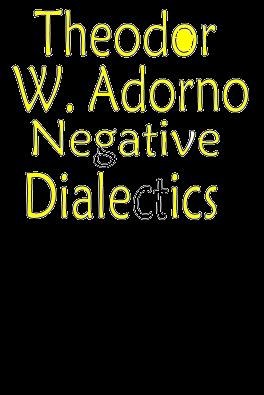

具体描述
What, at this historical moment "after Auschwitz," still remains of the questions traditionally asked by theology? What now is theology's minimal degree? This magisterial study, the first extended comparison of the writings of Theodor W. Adorno and Emmanuel Levinas, explores remnants and echoes of religious forms in these thinkers' critiques of secular reason, finding in the work of both a "theology in pianissimo" constituted by the trace of a transcendent other. The author analyzes, systematizes, and formalizes this idea of an other of reason. In addition, he frames these thinkers' innovative projects within the arguments of such intellectual heirs as Jurgen Habermas and Jacques Derrida, defending their work against later accusations of "performative contradiction" (by Habermas) or "empiricism" (by Derrida) and in the process casting important new light on those later writers as well. Attentive to rhetorical and rational features of Adorno's and Levinas's texts, his investigations of the concepts of history, subjectivity, and language in their writings provide a radical interpretation of their paradoxical modes of thought and reveal remarkable and hitherto unsuspected parallels between their philosophical methods, parallels that amount to a plausible way of overcoming certain impasses in contemporary philosophical thinking. In Adorno, this takes the form of a dialectical critique of dialectics; in Levinas, that of a phenomenological critique of phenomenology, each of which sheds new light on ancient and modern questions of metaphysics, ethics, and aesthetics. For the English-language publication, the author has extensively revised and updated the prize-winning German version.
作者简介
目录信息
读后感
评分
评分
评分
评分
用户评价
这本《Minimal Theologies》简直是点亮我信仰之路的明灯!我一直以来对神学都有浓厚的兴趣,但市面上那些厚重的著作常常让我望而却步。这本书的出现,恰恰满足了我对深度理解与轻便阅读的双重需求。作者以一种极其精炼、却又不失深刻的方式,将复杂的基督教神学概念梳理得井井有条。阅读过程中,我感觉自己仿佛在迷雾中行走,而《Minimal Theologies》就像一盏盏指路灯,清晰地照亮了前方的道路。它并没有回避神学中那些古老而重要的议题,例如上帝的本质、基督论、救赎论等等,但它处理这些议题的方式却让人耳目一新。不再是枯燥的学院派辩论,而是充满了灵性的洞察和实际的指导。我尤其喜欢它对“少即是多”这一理念的阐释,它不仅仅是一种写作风格,更是一种神学的方法论。通过剥离不必要的修饰和繁琐的论证,作者将神学的核心价值提炼出来,让我在最短的时间内触及到最本质的真理。对于那些渴望在快节奏的生活中,依然能保持对信仰的深入思考,却又没有太多时间研读厚重典籍的读者来说,《Minimal Theologies》绝对是不可多得的宝藏。它让我重新认识到,真正的智慧往往蕴藏在简洁之中,而信仰的深度,也并不需要以篇幅来衡量。
评分《Minimal Theologies》这本书,给我带来的震撼,远超我的预期。我原本以为这会是一本比较“轻”的书,但它的“轻”并非内容的寡淡,而是形式的极致简约所带来的力量。作者以一种近乎艺术的笔触,将庞大的神学体系压缩成一个个精悍的“节点”。每一次阅读,都像是在一次次地剥离浮华,直抵神学核心的宝石。它让我明白,真正的神学智慧,并不在于篇幅的长短,而在于概念的精准和洞察的深度。我一直认为,很多时候,我们被过于繁复的论证和术语所束缚,反而失去了对信仰最本源的理解。《Minimal Theologies》恰恰打破了这种藩篱。它用最少的文字,传达了最丰富的意义。它不是对神学的简化,而是对神学的“提纯”。每一次翻阅,都能在那些简短的段落中,找到新的启示,引发新的思考。它鼓励我们从“多”走向“少”,从“杂”走向“精”,从而发现信仰的真正魅力。我强烈推荐这本书给所有对信仰有追求,却又希望找到一条更直接、更深刻理解路径的读者。
评分初次翻阅《Minimal Theologies》,我便被它独特的风格所吸引。这不像是我通常接触的神学书籍,充满了晦涩的术语和冗长的解释。《Minimal Theologies》像是用最纯粹的语言,讲述最本质的道理。它以一种“少即是多”的哲学,触及了基督教神学的核心议题。我特别欣赏它在处理复杂概念时的“克制”。作者并没有试图包罗万象,而是选择了最关键的几个方面,进行深入的挖掘。每一次阅读,都像是在进行一次“精神上的减法”,去芜存菁,直达真理。它让我意识到,神学并非遥不可及的象牙塔,而可以是一种贴近生活,并且可以被清晰理解的存在。它鼓励我们去关注信仰中最根本的元素,比如爱、恩典、救赎,并以一种非常直观的方式呈现出来。对于那些在日常生活中感到信仰有些漂浮,或者对复杂的神学体系感到疲惫的读者,《Minimal Theologies》无疑会是一剂良药。它提供了一种全新的视角,让我们能够以一种更纯粹、更深刻的方式,与信仰建立连接。
评分《Minimal Theologies》这本书,对于我这样一直在神学道路上探索但常常感到迷失的读者来说,简直是意外的惊喜。我一直认为,真正有价值的知识,应该是可以被精炼和传达的,而不是被冗长的论述所包裹。这本书恰恰做到了这一点。作者以一种极其简洁,却又充满力量的方式,梳理了基督教神学的关键脉络。它没有炫技,没有故弄玄虚,只是用最纯粹的语言,揭示了最深刻的道理。我尤其喜欢它对“精炼”的坚持。在如今这个信息过载的时代,找到真正有价值的信息,就像大海捞针。《Minimal Theologies》就像是一个精明的导航员,它为我指明了方向,让我能够快速而准确地抵达信仰的核心。它鼓励我们放下那些不必要的枝节,专注于最根本的教义和实践。每一次阅读,都像是在进行一次心灵的“净化”,去除杂念,直抵本源。对于那些渴望在繁忙的生活中,依然能保持对信仰的深度思考,却又没有太多时间深入钻研的读者,这本书绝对是不可或缺的。
评分我必须要说,《Minimal Theologies》提供了一种我从未有过的阅读体验。它不仅仅是一本神学书,更像是一场精神的洗礼。我一直对某些宗教概念感到困惑,觉得它们被过度解读,或者被一些无关紧要的细节所掩盖。《Minimal Theologies》做到了“返璞归真”。它用最直接、最有力的方式,触及了信仰最根本的层面。作者的笔触简练而优雅,字里行间都充满了智慧的光芒。我最欣赏的是它对“精炼”的追求。在信息爆炸的时代,我们常常被各种杂音所淹没,而这本书就像一股清流,将我们拉回了最核心的议题。它并没有提供“简单答案”,而是引导我们思考“最重要的问题”。它鼓励我们放下那些不必要的包袱,专注于信仰最本质的教义和实践。我感觉自己像是在一个极简主义的圣殿里,每一件展品都经过精挑细选,直击人心。它让我重新审视了自己对信仰的理解,摆脱了许多无谓的困扰,从而能够更纯粹地去感受和体验信仰的力量。对于那些正在寻找更深层意义,或者感到迷失在繁复教义中的读者,这本书无疑会带来极大的启发和安慰。
评分 评分 评分 评分 评分相关图书
本站所有内容均为互联网搜索引擎提供的公开搜索信息,本站不存储任何数据与内容,任何内容与数据均与本站无关,如有需要请联系相关搜索引擎包括但不限于百度,google,bing,sogou 等
© 2026 book.quotespace.org All Rights Reserved. 小美书屋 版权所有




















